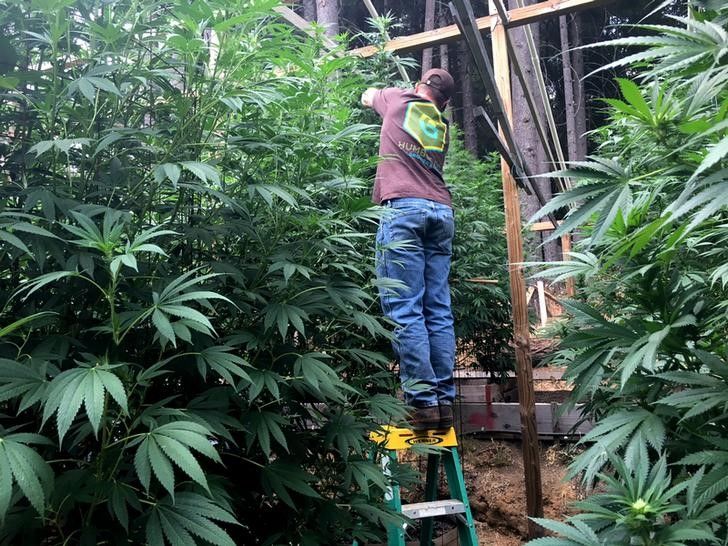Where is marijuana legalization now?

A few minutes every morning is all you need.
Stay up to date on the world's Headlines and Human Stories. It's fun, it's factual, it's fluff-free.
The politics on marijuana are clear. Legalization is no longer a question of if, but when.
While news of marijuana legalization in the United States has largely fallen by the wayside as the COVID-19 pandemic continues to dominate headlines, that didn’t stop advocates for its legalization from making huge gains in the 2020 election.
Every state ballot initiative on the legalization or decriminalization of marijuana passed in November. New Jersey and Arizona legalized recreational marijuana usage, voters in Mississippi legalized medical marijuana and South Dakota made marijuana legal for both recreational and medical use.
Several additional state initiatives covering other hard drugs were passed, including one in Oregon that decriminalized the possession of heroin, cocaine and other methamphetamines in small quantities (the new initiative does not make dealing these drugs legal). Meanwhile, an initiative in Washington, DC was passed that legalized psilocybin, a compound in psychedelic mushrooms.
These results bring the total number of states that have legalized recreational marijuana to 15 (in addition to Washington, DC) and the total number of states that have legalized medical marijuana to 36.
Who’s fighting for decriminalization?
There are three main groups currently fighting for the decriminalization of marijuana.
The first group is the cannabis industry, which was estimated to be worth US$17.5 billion globally in 2019. The industry has grown thanks to states’ increasing legalization of the drug and it’s estimated to be worth US$65.1 billion by 2027.
Another factor that has caused the industry to grow is the destigmatization of soft drugs themselves.
The “war on drugs,” a campaign against drug use launched by the administration of former President Ronald Reagan, has lost its appeal for the newer generations. More than three-quarters of millennials favor the legalization of marijuana, compared to 63% of baby boomers.
The second group fighting for decriminalization is reform advocates, who have argued for decades that the criminalization of marijuana disproportionally affects people of color.
A bipartisan group of politicians and activists declared marijuana legalization to be a racial justice issue in 2019, with some calling for the abolition of mandatory minimum sentences in prison.
Such advocates likely have an ally in President Joe Biden, who has voiced his support for legalizing marijuana and expunging the records of nonviolent offenders.
“What’s holding back too many people of color – in finding a good job or starting a business – is a criminal record that follows them every step of the way,” Biden said at a campaign stop in July. “Getting caught for smoking marijuana shouldn’t deny you a good-paying job and career, a loan, or ability to rent an apartment.”
The last group of supporters comes from a somewhat unexpected place – state governments themselves. Because of the sheer size of the cannabis industry, some state governments that were already suffering from budget shortfalls caused by the pandemic see the introduction of cannabis as an opportunity to make up some ground.
In 2019 alone, Colorado raked in more than US$300 million in taxes and fees related to the sale of marijuana.
This opportunity is a massive one for states whose economic stability has been crippled by an ongoing pandemic that has claimed nearly half a million American lives and left more than 10 million Americans unemployed.
Surge in popularity
Over time, the legalization of weed has seen significant growth, the tipping point being in 2010 when more Americans favored legalization than opposed it, according to the Pew Research Center.
There has been a significant shift in public attitudes toward legalization over the long term, considering that only 12% of Americans favored legalization in 1969. Over the last decade that number has grown even more, with 67% of Americans favoring legalization in 2019.
The topic has revealed itself to be an increasingly bipartisan issue, with a majority of Americans on both sides of the aisle in favor of legalizing marijuana, while nine out of 10 people believe that cannabis should be legalized for medical purposes.
Many health experts believe that cannabis legalization is a good thing, with more than a hundred researchers, clinicians and academics penning an open letter in 2020 endorsing the Marijuana Opportunity Reinvestment and Expungement (MORE) Act, a federal bill that would deschedule cannabis from the Controlled Substances Act.
What happens next?
How the legalization of marijuana is handled in states that decriminalized it last November will likely have a significant effect on how quickly things play out going forward. A speedy and economically beneficial rollout will likely demonstrate that states are eager to get a slice of the pie, while a prolonged rollout that sees a low return will likely slow the process down in other states.
However, the politics on marijuana are clear. Legalization is no longer a question of if, but when.
Have a tip or story? Get in touch with our reporters at tips@themilsource.com




Comments ()